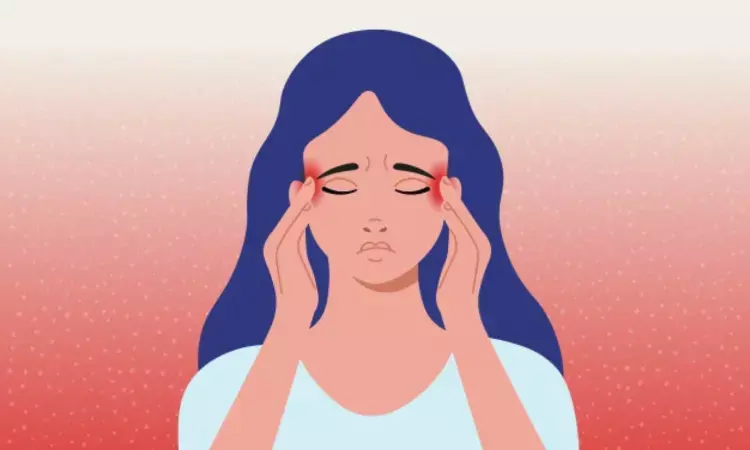- Home
- Medical news & Guidelines
- Anesthesiology
- Cardiology and CTVS
- Critical Care
- Dentistry
- Dermatology
- Diabetes and Endocrinology
- ENT
- Gastroenterology
- Medicine
- Nephrology
- Neurology
- Obstretics-Gynaecology
- Oncology
- Ophthalmology
- Orthopaedics
- Pediatrics-Neonatology
- Psychiatry
- Pulmonology
- Radiology
- Surgery
- Urology
- Laboratory Medicine
- Diet
- Nursing
- Paramedical
- Physiotherapy
- Health news
- Fact Check
- Bone Health Fact Check
- Brain Health Fact Check
- Cancer Related Fact Check
- Child Care Fact Check
- Dental and oral health fact check
- Diabetes and metabolic health fact check
- Diet and Nutrition Fact Check
- Eye and ENT Care Fact Check
- Fitness fact check
- Gut health fact check
- Heart health fact check
- Kidney health fact check
- Medical education fact check
- Men's health fact check
- Respiratory fact check
- Skin and hair care fact check
- Vaccine and Immunization fact check
- Women's health fact check
- AYUSH
- State News
- Andaman and Nicobar Islands
- Andhra Pradesh
- Arunachal Pradesh
- Assam
- Bihar
- Chandigarh
- Chattisgarh
- Dadra and Nagar Haveli
- Daman and Diu
- Delhi
- Goa
- Gujarat
- Haryana
- Himachal Pradesh
- Jammu & Kashmir
- Jharkhand
- Karnataka
- Kerala
- Ladakh
- Lakshadweep
- Madhya Pradesh
- Maharashtra
- Manipur
- Meghalaya
- Mizoram
- Nagaland
- Odisha
- Puducherry
- Punjab
- Rajasthan
- Sikkim
- Tamil Nadu
- Telangana
- Tripura
- Uttar Pradesh
- Uttrakhand
- West Bengal
- Medical Education
- Industry
Blood flow changes in eyes linked to visual symptoms of migraines

Migraine is among the most common of all disorders and is also one of the most disabling. Although substantial progress has been made regarding basic mechanisms of migraine, many unanswered questions remain.
A recent study found changes in blood flow in the retina could explain why some migraine patients experience visual symptoms. The findings could represent a long-sought observable marker for migraines that doctors can use to aid in the clinical treatment of the condition.
While patients with migraines often experience symptoms such as pain around the eye, sensitivity to light, blind spots and visual blurring, the mechanisms behind those symptoms have not been well understood. UCLA Health researchers used a non-invasive imaging technique, known as optical coherence tomography angiography, or OCTA, to visualize changes in the retinal blood vessels of migraine patients both during and between migraine attacks. The imaging was performed on 37 migraine patients with aura symptoms, 30 migraine patients without aura symptoms and 20 healthy patients for a control group.
Researchers found that blood flow decreases in the retina during migraine attacks for both migraine patients with and without aura symptoms. However, patients with aura symptoms were found to have lower blood flow in certain areas of the retina compared to patients without aura symptoms. Additionally, asymmetrical blood flow in the retinas was also correlated with which side of the head that migraine patients experienced pain. The researchers found that found reduction in retinal perfusion in the parafoveal retina during a migraine attack with the aid of VFI, a sensitive measure for retinal perfusion derived from the non-binarized OCTA.
The findings could indicate why some patients experience visual symptoms and may represent a biomarker for migraine attacks.
Reference:
Katherine Podraza, Nitin Bangera, Akira Feliz, Andrew Charles, Reduction in retinal microvascular perfusion during migraine attacks, Headache The Journal of Head and Face Pain, https://doi.org/10.1111/head.14654
Dr Kamal Kant Kohli-MBBS, DTCD- a chest specialist with more than 30 years of practice and a flair for writing clinical articles, Dr Kamal Kant Kohli joined Medical Dialogues as a Chief Editor of Medical News. Besides writing articles, as an editor, he proofreads and verifies all the medical content published on Medical Dialogues including those coming from journals, studies,medical conferences,guidelines etc. Email: drkohli@medicaldialogues.in. Contact no. 011-43720751


